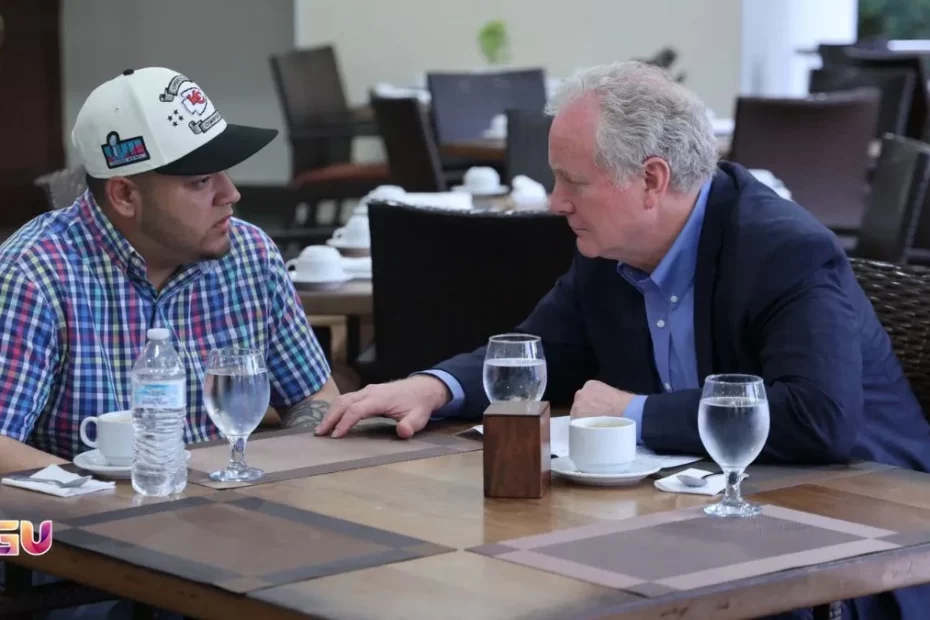Washington, D.C. — In a politically explosive turn of events, Kilmar Abrego Garcia, a Salvadoran national whose mistaken deportation by U.S. immigration officials sparked bipartisan criticism and legal battles, has been returned to the United States—but not to right a wrong.
He is now facing federal criminal charges, raising serious questions about due process and the administration’s handling of the case.
The Trump administration, after months of denying any wrongdoing, now says Garcia was lawfully indicted on charges of human smuggling and conspiracy. But critics argue this sudden pivot is less about justice and more about political optics in an election year dominated by immigration crackdowns.
Mistaken Deportation Becomes Political Firestorm
The saga began in March 2025, when Immigration and Customs Enforcement (ICE) mistakenly deported Abrego Garcia to El Salvador—even though a 2019 immigration court ruling granted him protection from removal due to fears of persecution.
Upon his return to El Salvador, he was imprisoned at the CECOT mega-prison, one of the most notorious facilities in the region. For weeks, both the U.S. government and Garcia’s attorneys agreed: his deportation was an “administrative error.”
But the tone quickly changed. Administration officials later labeled him a “known MS-13 member,” alleging ties to criminal trafficking operations. President Trump, who initially said Garcia could not be brought back due to Salvadoran custody, later told NBC News, “It wasn’t my decision. The DOJ made the call—and that’s fine.”
DOJ Unseals Indictment as Garcia Lands Back in U.S.
On Friday, Garcia landed back on U.S. soil, not for a hearing on his wrongful deportation—but to face federal charges. According to a newly unsealed indictment filed in the Middle District of Tennessee, he is accused of:
- Conspiring to unlawfully transport undocumented immigrants across multiple states, including Texas and Maryland
- Transporting immigrants for financial gain
- Soliciting explicit images from a minor
- Abusing undocumented women, based on co-conspirators’ testimony
If convicted, Garcia faces prison time in the U.S., followed by deportation to El Salvador.
Legal Experts Slam Government’s Handling
Garcia’s legal team and civil rights advocates say this legal move is a manipulation of the judicial process.
“This is not justice. This is retaliation masked as prosecution,” said Simon Sandoval-Moshenberg, Garcia’s lead attorney. “Due process means you get to defend yourself before the government punishes you—not after it wrongly deports you to a foreign prison.”
Judge Paula Xinis, who previously ordered Garcia’s return to the U.S., has accused the administration of stonewalling and noncompliance in court filings. The Supreme Court weighed in back in April, ordering the administration to “facilitate” Garcia’s return—but stopped short of mandating it, complicating enforcement.
High-Level Tensions: Rubio, Bukele, and Senate Oversight
U.S. Secretary of State Marco Rubio reportedly coordinated with Salvadoran President Nayib Bukele to negotiate Garcia’s return, although Bukele had previously refused.
In April, Senator Chris Van Hollen (D-MD) traveled to El Salvador to meet with Garcia. After initially being denied access, Van Hollen described Garcia as “traumatized” by the prison environment. In a statement Friday, the senator said, “This isn’t about the man—it’s about our Constitution. The administration must now prove its case in court, as it should have from the start.”
What Comes Next: Trial and Political Fallout
Garcia is being held in federal custody pending an arraignment and detention hearing next week. Legal analysts say the case could test the boundaries of executive power in immigration enforcement, especially when courts have already ruled in favor of the deportee.
With the 2025 election season heating up, the case has become a flashpoint in the immigration debate, with human rights groups warning that the government’s actions could set a dangerous precedent for how it treats those with legal protections from removal.
